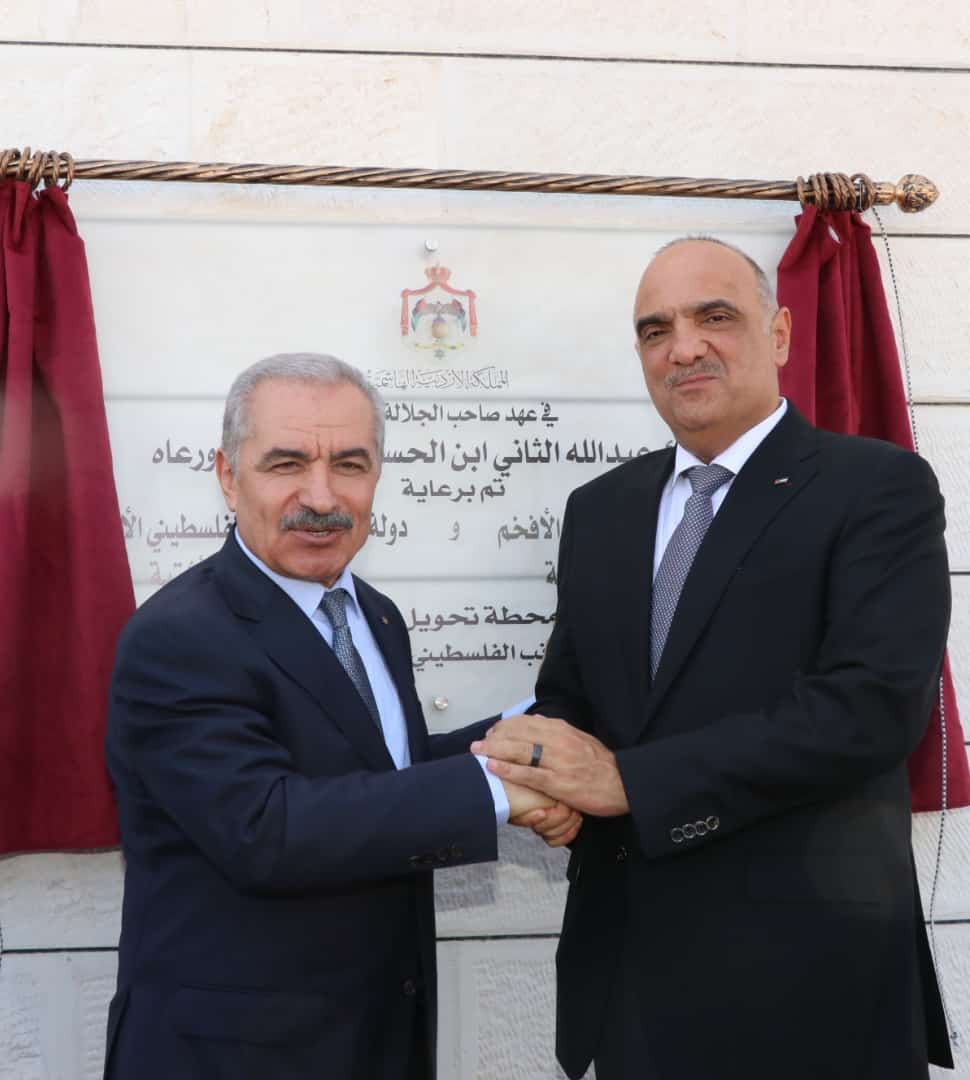Jordan’s Prime Minister Bishr Khasawneh and his Palestinian counterpart, Muhammad Shtayyeh, inaugurated a major upgrade project at the Ramah power station in the Jordan Valley on Wednesday, doubling Jordan’s energy supply to West Bank cities from 40 to 80 megawatts.
The station will provide electricity to the West Bank cities of Jericho, Jerusalem, Ramallah, and Al-Bireh.
Khasawneh emphasized that the project reflects Jordanian commitment to assist in laying the foundation for an independent, fully sovereign, and viable Palestinian state on the lines of June 4, 1967, with East Jerusalem as its capital, and within the framework of the two-state solution.
“We are fully committed to supporting and assisting the Palestinian brothers in order to achieve a just and comprehensive peace for the region based on international legitimacy and the terms of reference for the peace process that were previously agreed upon by the Palestinian and Israeli sides,” Khasawneh said.
The Prime Minister stated that Jordan is doing everything possible to safeguard the historical and legal status of Al-Aqsa Mosque, Al-Haram Al-Sharif and the Islamic and Christian holy sites in Jerusalem.
Khasawneh stated that he briefed his Palestinian counterpart on Jordan’s plans and measures to develop and expand the King Hussein Bridge crossing, adding that “we have today a set of preliminary offers from a number of coalitions seeking to develop the crossing.”
He expressed hope that the planned expansion, in which the passenger track will be separated from the freight track, will be completed by 2025 in order to improve traveler mobility and bilateral trade.
Palestinian Prime Minister Muhammad Shtayyeh emphasized the importance of the electric power station project and stated, “Jordan stands with us today in our strategy to gradually disengage from the dependence imposed on us by the occupation in trade, infrastructure, energy, and others.”
Shtayyeh lauded the steps taken by the Jordanian government to make it easier for Palestinians to cross the King Hussein Bridge and to extend the bridge’s operating hours.
“Neither Ramon Airport nor any other airport will be a substitute for Jordan in terms of transportation and movement,” The Palestinian Prime Minister stated, adding that “projects that would harm the shared Jordanian-Palestinian interests will not find an official or popular Palestinian partner.”

